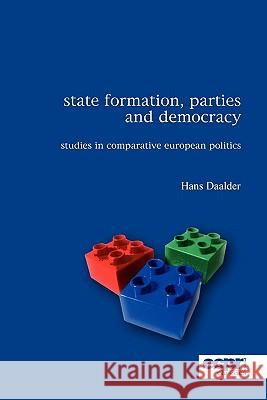State Formation, Parties and Democracy: Studies in Comparative European Politics » książka
State Formation, Parties and Democracy: Studies in Comparative European Politics
ISBN-13: 9781907301179 / Angielski / Miękka / 2011 / 304 str.
This volume re-publishes classical studies by Hans Daalder on three major themes: the different paths towards state formation in Europe; their effect on parties and party systems and their alleged crises; and the rise and merits of the consociational democracy model. The book throws a unique light on the development of comparative studies after World War II as seen through the eyes of an active participant. In a fascinating preface Peter Mair contrasts two scholarly generations in the field of comparative and cross-national studies.
This volume re-publishes classical studies by Hans Daalder on three major themes: the different paths towards state formation in Europe; their effect on parties and party systems and their alleged crises; and the rise and merits of the consociational democracy model. The book throws a unique light on the development of comparative studies after World War II, as seen through the eyes of an active participant. In a fascinating preface Peter Mair contrasts two scholarly generations in the field of comparative and cross-national studies.HANS DAALDER is emeritus professor of political science at Leiden University where he founded one of the eight departments which went onto form the ECPR in 1970. On his retirement he contributed to and edited Comparative European Politics: The Story of a Profession (London 1997) a collection of studies by scholars of comparative European politics from both sides of the Atlantic.











